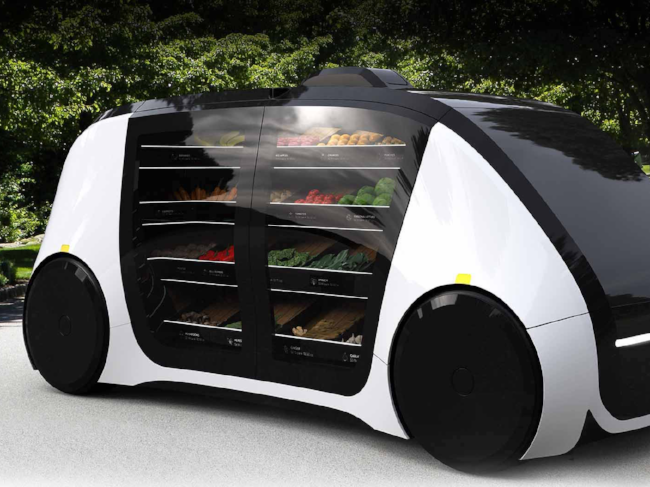A Car That Delivers Your Groceries
If you’re feeling lazy to go out to buy your groceries, autonomous technology has your back. As technology becomes smarter, so does the variety of uses that comes along with it. And it seems like now, the world of grocery shopping is about to get a bit more convenient for everyone.
According to a 2018 study conducted by the Food Marketing Institute and Nielsen, up to 70% of Americans will be buying their groceries online in the next 10 years. Bill Bishop, co-founder of Brick Meets Click, a Barrington, Illinois-based consulting firm that analyzes changes in the grocery industry, says that the demand for such technology is a reflection of the broader trends moving away from “mass retail to personalized retail,” with new technologies offering consumers a more individualized shopping experience.
One of the partnerships focused on automotive grocery delivery is between the startups AutoX and GrubMarket. The idea is that the cars will transport produce and snacks to your doorstep, and allow for the customers to choose items directly from the backseat of the car, which is temperature-controlled and stocked with ready-made products such as fresh juice and yoghurt. It’s something like a reverse drive-thru window. However, this service is currently being tested in California only.
Image from: MIT Technology Review
AutoX, founder and CEO, Jianxiong Xiao is changing things around by using high-resolution cameras instead of the more expensive GPS radars. He explains that this is more economical and enables its AI to see farther ahead for longer distances. AutoX’s camera-centric system could make self-driving cars more accessible if carmakers and ride-sharing companies choose its technology over its competitors.
Similarly, American grocery store chain Kroger is teaming up with Nuro, a Silicon Valley based robotics company to build a fleet of automotive cars designed to save you a trip to the supermarket. While these look like giant toasters on first sight, the deliveries will be carried out by Nuro’s R1 car bots, with a top speed of 40km/h. The cars themselves have two temperature-controlled compartments, which can each carry up to six bags of groceries. When the car arrives at its destination, customers will be notified and sent a code to unlock and unload their goods.
Image from: Mashable
“Our customers are increasingly wanting different ways of fulfilling their food and shopping needs,” said Yael Cosset, Kroger’s chief digital officer. Nuro CEO Jiajun Zhu agrees, stating that autonomous technology could help reduce costs associated with grocery deliveries, with cost-cutting measures done through manpower and components like battery packs etc.
Robotmart is another startup which debuted a self-driving, nearly fully autonomous grocery store on wheels. The robot cars will bring fruits, vegetables, and other perishable items from the supermarket aisle to customers’ doors. Customers can use a smartphone app to hail the closest robot, which arrives packed with fresh produce. The app unlocks the doors, and the robot tracks what customers have taken using an array of cameras. Every Robotmart vehicle comes equipped with LiDAR, radar, and cameras that help it see and drive without a human operator. Ahmed said he expects Robomart to be fully autonomous this year.
Image from: Business Insider
According to Robotmart founder Ali Ahmed, the company could compete in terms of grocery delivery with giants like Amazon, Instacart, and Postmates. The idea is that supermarkets will license the Robotmart platform, which Ahmed says will still be cheaper than opening a new store.
What do you think about this new way of using the autonomous vehicles and how these three companies are making it work? Leave a comment below!



